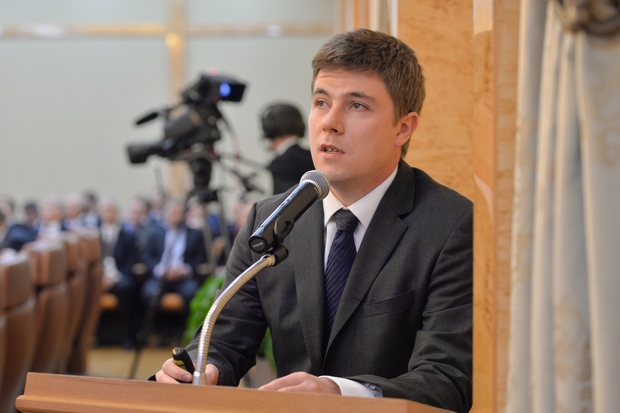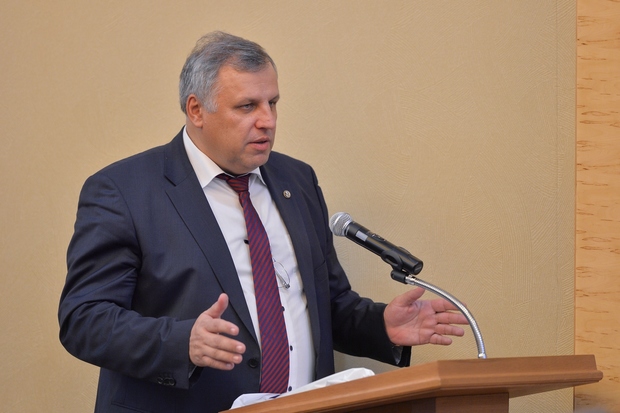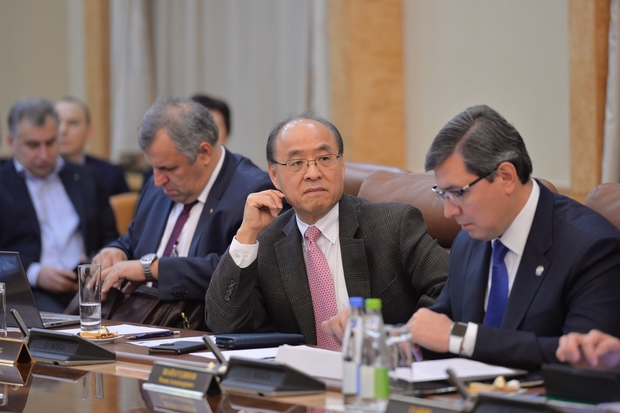Tatarstan is offered to produce its own biokerosene and biopetroleum
About why the government is not afraid of cyberattacks and first commercial flights using biokerosene
The creation of joint ventures of petrochemical enterprises of Tatarstan with an American company, production of biopetroleum and biokerosene from thatch, residues of sugar beet and low-quality wood in Tatarstan. These innovative projects were included in the agenda of the next meeting of the board of directors of Tatneftekhiminvest-holding PJSC. As usual, it was held on 25 February in the Cabinet of Ministers of the Republic of Tatarstan chaired by the President Rustam Minnikhanov.
Effect of conversion
To start with, GTC Technology (USA) presented its projects. The company is one of the leading licensor in aromatics production (benzene, toluene, paraxylol, etc.). GTC Technology is already working with Nizhnekamskneftekhim on the manufacture of high value added products – benzene, styrene, isoprene and others. A possibility of the production of its own benzene is elaborated with Kazanorgsintez in order to get rid of dependence on raw material.
The company elaborated a revolutionary technology in which natural gas methane is used as raw material for the production of petrochemical products. Russia is rich in gas, and its prime cost is low. This is why an issue on effective gas conversion arises. Due to methane outlet conversion, different products can be obtained (aromatics, polypropylene, butadiene, ethylbenzene and styrene). 400,000 aromatic hydrocarbons can be produced from 900,000 tonnes of gas per year.
This technology can become a perspective direction of the development of Russian petrochemistry. GTC has its own demo equipment that has been functioning for 3 years. It produces 30,000 tonnes of products from gas as raw material.

An international consortium is forming that will build the aromatic complex with a capacity of 300,000 tonnes per year using natural gas.
GTC Technology invited enterprises of Tatarstan to participate in this project. The second project is the creation of a joint enterprise on petroleum resin production together with Tatarstan enterprises. They are not produced in Russia yet. Together with Nizhnekamskneftekhim, GTC could create a production of petroleum resins by conversion of secondary products of pyrolysis. The company has such joint ventures in the USA, Italy and India.
Petroleum resins are used in the production of rubber and technical goods and artificial leather, mastics for construction for wall facing, roofing and waterproofing.
Tatarstan is quite a large tyre producer, and additives in the form of petroleum resins might be very precious to increase the profitability rate of the production.
The director general of TAIF PJSC Albert Shigabutdinov noted that the project on the joint venture on petroleum resin production is very prospective and interesting. The chairman of the board of directors of Nizhnekamskneftekhim Vladimir Busygin informed that Nizhnekamskneftekhim was interested in new technologies of benzene and styrene production. This is why NKNKH asked GTC for technical and economical indicators of the project.

Own biofuel
The director of Boreskov Institute of Catalysis SB RAS (Novosibirsk) Valery Bukhtiyarov told about prospects of use of renewable plant raw material in fuel and petrochemical complex of Tatarstan. We are speaking about biomass – thatch, residues of sugar beet, low-quality wood and logging residues as raw material for energy saving.
So, such products as biopetroleum and biokerosene might be obtained. Biopetroleum is a new kind of biofuel. It is produced by deep chemical conversion of different raw materials based on pyrolysis. It is an intermediate product for the manufacture of different types of motor fuel.
Use of biokerosene allows to reduce the emissions of CO₂. This fuel is used by some airlines. First commercial flights using biofuels Total and Amyris were performed by GOL (Brazil) and Lufthansa (Germany) in the summer 2014. This biofuel has being used in regular flights in France since October 2014.
Valery Bukhtiyarov offered to create a coordinating centre with the participation of the enterprises of Tatarstan under the aegis of which projects on biofuel creation would be realized.
The President of Tatarstan approved the idea and noted that there was a large amount of residues, unclaimed wood, sugar beet and assigned a task to create a working group from relevant Ministries and enterprises of the Republic of Tatarstan. In his opinion, such projects give an opportunity to diversify the forestry and agricultural and industrial complex.
'Hacking us, nothing will happen'
The director of Kaspersky Lab Yevgeny Goncharov presented a new product of the company – a specialized solution for protection of critically important infrastructures and industrial enterprises. Kaspersky Industrial CyberSecurity was created taking into account the peculiarities of workflow management software. It is designed to protect industrial enterprises from external cyberattacks and an insider' actions. This platform is used in TANECO PJSC. Apart from protection, the solution includes expert and educational services that will help enterprises to create a maximally effective security system.
Yevgeny Goncharov reminded about largest world cyberattacks as a result of which companies suffered from multimillion and multibillion losses. So, in December 2015, electricity was cut off for six hours in five Ukrainian regions because of cyberattacks on the energy system of the country.
The owner of Kaspersky Lab Yevgeny Kaspersky visited Tatarstan in February and met with the President of the republic. They decided to create an industrial cybersecurity competency centre.

The Minister of Information and Communication of Tatarstan Roman Shaikhutdinov informed that there would be created a centre of online monitoring on protection from cyberattacks in Tatarstan. 'Our resources – network of TV communications of the government – are attacked about 15m times in a year,' the Minister marked the seriousness of the problem.
'Hacking us, nothing will happen. Another paper can be written. But it is dangerous for the enterprises,' the head of the republic reacted. He told the Minister of Information and Communication to control this topic and transmit the gained experience to regions of Russia and abroad.